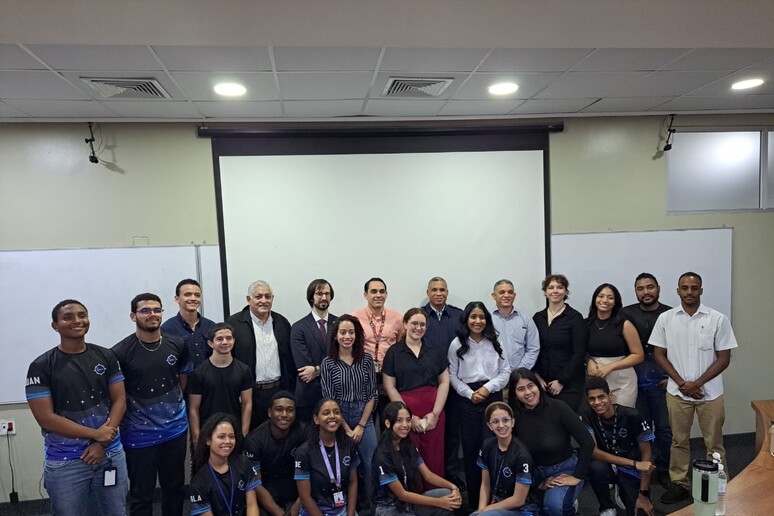On the occasion of the celebration of National Space Day, the Embassy of Italy in the Dominican Republic, together with the Dominican National Council for Climate Change and Clean Development Mechanism (CNCCMDL), as well as the Pedro Henríquez Ureña University and the Technological Institute of Santo Domingo (Intec), organised the conference 'Promoting Aerospace Development: Italian-Dominican Cooperation' held at Intec.
The event was attended by students from the Institute and the Don Bosco School, who received information on the importance of developing nano-satellites to obtain advanced data for topics such as monitoring the arrival of sargassum (a type of seaweed, ed.), marine biodiversity or risk prevention.
During the discussion, the Ministry of Foreign Affairs and International Cooperation's special envoy for space, Marco Lisi, reiterated his support for the Dominican Republic in its effort to develop national capacities for observation, collection and analysis of aerospace data, and made a presentation on the development of the Italian space sector, highlighting the commemorative milestone of Italy's National Space Day. which celebrates the 60th anniversary of the launch of Italy's first satellite, the San Marco I, put into orbit on 15 December 1964.
For his part, Paolo Marzioli, lecturer at Rome's La Sapienza University, explained that the development of space technology has a positive impact on various areas of nations' scientific and technological development, generating advanced capabilities in fields such as aeronautics, physics, specialised software programming and design, mechatronics and electronics.
On behalf of the Italian Embassy in Santo Domingo, Acting Chargé d'Affaires Rodolfo Colaci emphasised the importance of cooperation and space diplomacy in a complex international context.
In turn, the head of Geomantics at the CNCCMDL, Teodoro Jiménez, emphasised the importance of the Italian government's cooperation with the Dominican Republic in the space area, particularly in the development of the National Centre for the Processing of Climate Archives and Satellite and Drone Images. While Edwin Sánchez Camilo, an engineer from Intec's Mechatronics Department, detailed the phases and deadlines of the Quisqueyasat-1 project, developed with the collaboration of Italy, and highlighted the need to monitor the sargasso phenomenon and lay the foundations for future, more complex projects.
ALL RIGHTS RESERVED © Copyright ANSA











